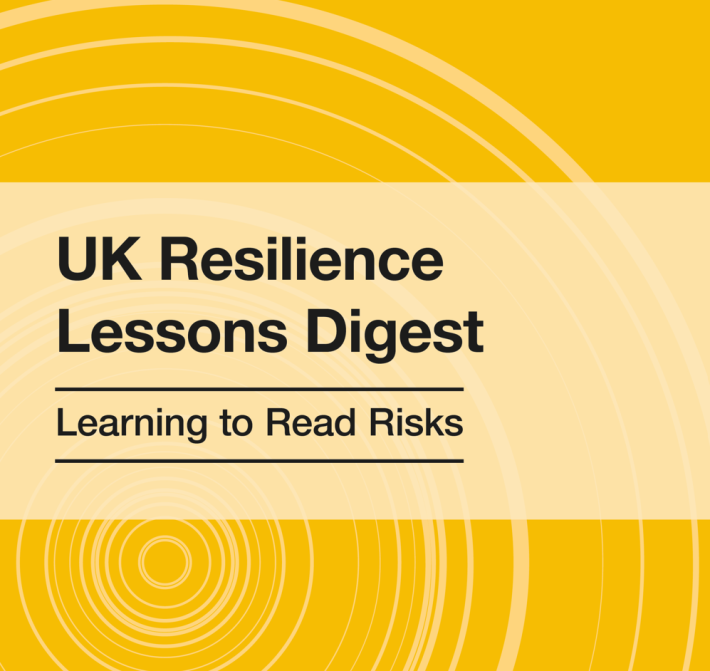
The third edition of the UK Resilience Lessons Digest, ‘Learning to Read Risks’, will be published later this month. In keeping with the recent publication of the National Risk Register (NRR) 2023 Edition, this latest issue takes a closer look at lessons identified on risk during COVID-19. This includes lessons emerging at national and international levels, such as those that informed recent updates to the NRR risk assessment methodology.
Bringing these lessons on risk into a shared space is both timely and valuable:
It is valuable because a developed and shared understanding of the risks we face is vital for building and strengthening whole-society resilience. The primacy of this shared understanding is emphasised in the UK Government Resilience Framework, where it is presented as the first of three core principles for resilience. It is also a key principle in the UK’s Joint Doctrine: The Interoperability Framework (JESIP), playing a fundamental role in the ability of responder organisations and wider resilience partners to work together as a matter of course in an emergency response. In fact, this collective understanding of risk provides a starting point of all resilience work - driving thought and action across the risk cycle as we anticipate, assess, prevent, prepare, respond and recover from emergencies.
It is timely because the COVID-19 pandemic has arguably created a global shift in our understanding of risk, generating important lessons on how we might adapt our approach to the challenges we face going forward. But if these lessons are left in the reports that present them, there is little they can do to help us. Therefore, whilst new and updated learning on risk will inevitably continue to emerge, it is pertinent to take the lessons already in hand. In this spirit, ‘Learning to Read Risks’ considers common learning themes and transferable lessons on risk that can inform resilience activity in the here and now. Whilst challenging to accommodate, failing to summarise, share and coordinate these lessons might only perpetuate the risks associated with not addressing lessons, potentially allowing latent vulnerabilities to simmer under the surface until the next response is required.
Finally, in addition to the central analysis of lessons on risk, Lessons Digest 3 is packed full of articles, insights, case studies and resources. This includes excellent guest contributions from:
- The Royal Academy of Engineering
- NHS Alder Hey Children’s Hospital in Liverpool
- Emergency Management Victoria in Australia
- PWC’s Crisis and Continuity Management team
Don’t miss on the opportunity to get this latest edition and future resources direct to your inbox by signing up for EPC communications